Charlie Adam will move on from Blackpool this summer and he will begin the new season at a new club. His time at Blackpool was a tremendous success for him and the club and he will be remembered as one of the finest players to grace the pitch at Bloomfield Road.
This article will openly and honestly assess his ability and hopefully give fans of his prospective new club an idea of the player away from limited highlights that may have been packaged up by your regular media outlets.
Information:

Charlie Adam - Blackpool's Number 26
Full name: Charles Graham Adam
Date of birth: 10th December 1985
Height: 6 ft 1 in (1.85 m)
Place of birth: Dundee, Scotland
Current club: Blackpool Football Club
Previous clubs: Rangers, Ross County (loan), St Mirren (loan)
Made to measure
To start here’s a quick look at his key statistics from the season.

Those may be the stats that give a feel for what Charlie Adam is all about, however, that is within the context of Blackpool’s team structure and the season they had and it is important to keep them in that context. What cannot be detailed here is where this places Adam in the context of his Premier League peers as that data isn’t readily available for the purposes of this article.
However, here are some observations that will add depth to the understanding of the player and what he will bring to his new club.
Passing
He is equally adept at finding both corners of the pitch with long penetrating passes either lofted or drilled low and flat, although the pass from left to right is his most natural play. He can execute them through a normal passing technique or via a higher risk volley pass which can be very potent when executed accurately. His first time passing (without looking up) can be sublime and well disguised, however, these carry a high tariff and don’t always work. If intercepted early enough then he can compromise his own team’s shape in the defensive phase. His passing over a short range is excellent and very reliable. His passing is equally excellent regardless of pitch location, edge of the box passing can be as good as passing from the deep. Near the edge of the box he will attempt a diagonal ball cut between and behind defenders getting them to turn.
He does however, need time on the ball in order to pick his pass and if a team puts him under pressure, he can be caught in possession by an astute opponent. If his awareness allows him to sense danger he will surge forward to create space to release the pass. However, his accuracy can suffer in these situations as his focus tends to be disturbed.
Below you can see how his pass completion fluctuated throughout the season from a high of 81% to a low of 45%.

Note: Where the line is thicker it means the number of successful passes was higher.
Pace
He has pace, a common misconception is that he isn’t quick. He’s certainly not a hundred metre runner, however, his pace over the first few metres is enough to take him away from most opponents especially given his upper body strength and ability to fend off tacklers (he has a take on success rate of 49%). However, this pace cannot be sustained over distance and will look to a drag of the ball or a nutmeg to beat his man rather than engage in a foot race.
Strength & Stamina
Physically he looks strongly built, if anything he may be carrying too much body fat which would improve given the right circumstances as Blackpool’s approach to fitness conditioning isn’t comparable to an established Premier League team. However, his stamina doesn’t appear to be an issue. He is strong in head to heads, tough in the tackle, a decent leap is met with a good sense of timing and a strong neck gives him above average aerial power which he utilises more in his own box rather than the attacking one, more due to his positioning and role within the Blackpool team. He doesn’t appear to be overly susceptible to injury, tends to pick up very occasional knocks as opposed to serious injuries either by overuse or accident.
Shooting & set pieces
He is excellent at delivering set pieces. Wide free kicks are better delivered from wide on the right hand side and generally hits them just above head height swinging inwards. His free kick delivery from wide left have a tendency to be hit low towards feet and behind the defensive line, swinging away from goal. He generally takes the majority of his corners from the right side, in-swinging, although has a tendency to over hit the ball. His striking of the corner can be inconsistent with a scuffed low and running corner being the key fault. His goal against West Ham was scored in this fashion, but it wasn’t deliberate as his celebration would confirm.
His direct free kicks are especially dangerous, he is able to force a powerful strike hard and low or hard and at wall height or float and curl in to the corners. He is at his most dangerous when the kick is right of centre with the strike curling to the top right corner. His penalties used to show a tendency to be struck low to the right corner, however, recently his penalties have shown his variation, with occasional strikes to the left making him hard to read. His placement shows reliability and will often strike them with power to evade the ‘keepers dive.
Mentality
He is a team player and selfless with it, he has filled in when the team are short of cover and has played centre forward, centre back and left back in games albeit for short periods. He leads his team by example, interacts with the crowd as well as appearing to be very vocal towards his team mates. He appears equally spirited between his own team and the opposition and plays hard, but fair. He appears to take time to recover from mistakes and possibly has highly critical self talk that might impinge on him delivering over a course of a match when a mistake has occurred. For example, an early misplaced pass or the own goal at home to Blackburn or being caught in possession prior to Birmingham’s second goal at St Andrews.
His disciplinary record is marked by his persistent collecting of yellow cards (11 this season), however, it is rare that he loses his temper, even though he was sent off on his Blackpool for a stamp on an opponent. He does appear to have moments of passion where his focus is lost and can lead him in to the occasional rash challenge.
Technical ability
He has good close control, the ball rarely escapes him. He is strong at taking the ball down with the chest and will shield the ball well. He is however, very left footed, passing and shooting accuracy suffer when he uses his right foot. An opponent who can make him turn on to his right side will enjoy an advantage.
Positional play
Within Blackpool’s 4-2-3-1 formation, he forms a part of the deeper two midfielders, but is more progressive than his partner and acts as a link from holding midfielder to the man at the tip of the midfield triangle. When Blackpool play their flatter 4-3-3 he will normally gravitate towards the centre left of the midfield three.

He can set up plays from the middle and left of the pitch (1 & 2), but is given license to support the attack in the final third (4) and can easily play in that more advanced role. He tracks back well to close out space in the defence and will support his left back when under attack, covering runs in behind. He can hold the deeper position (3), although it tends to be against his natural attacking instinct. He made some of his early appearances for Rangers wide left (5), although his lack of pace means he wouldn’t necessarily penetrate the opposition back line, but his delivery from out wide could be utilised more often as well as his link up passing to bring others in to the game.
As revealed in the programme notes for the game at home against Manchester United it is interesting to note that he believes his best position to be at centre half (6) and this hints at the possibility of him covering as a sweeper in some schemes. He is adept at dropping deep between the centre backs when then spread to cover full back raiding forward. From this position he will comfortably hit long diagonal passes (left to right is the most common) or revert to short passes.
Should he be employed in a 4-4-2 then he can be exposed against the opposition central midfield pair, should they work hard to pressurise him and to cut off the link from his midfield partner. It would be unwise to utilise him in this formation given his propensity for needing more time on the ball. A midfield three gives him support and passing options as well as cover for when he breaks forward.
Awareness and vision
He has an excellent understanding of the pitch in front of him and where the space is in front of him in which to pass the ball. He can often see the plays that his Blackpool team mates cannot which can lead to misplaced passes. Should he be surrounded with players of a greater understanding, anticipation and pace his passes may link up more often. However, his vision tends to be limited and doesn’t possess a good awareness of a full 360 degrees which often means he is unaware of what is going on behind him, which not only reduces his passing options, but leaves him susceptible to a timely intervention by an opponent from behind.
Conclusion
Adam is a good central midfielder, with excellent passing range, good technical ability but at times tries to repeat the extravagant pass a little too often. He has great value to his set piece delivery and is tough and good spirited. Physically strong, but requires a better base fitness which might improve his speed and stamina. His vision needs improvement as do his reactions to working in tighter spaces. What is possible is that his drive, desire, ambition and determination to learn and develop suggests that he will improve given the right conditions.











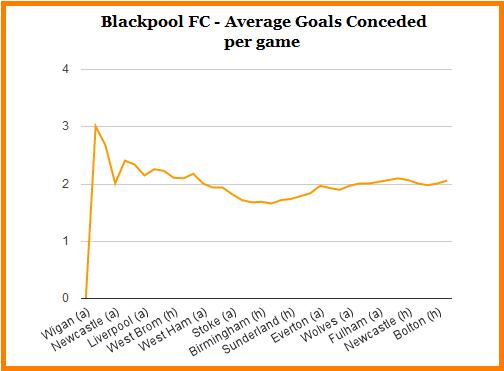

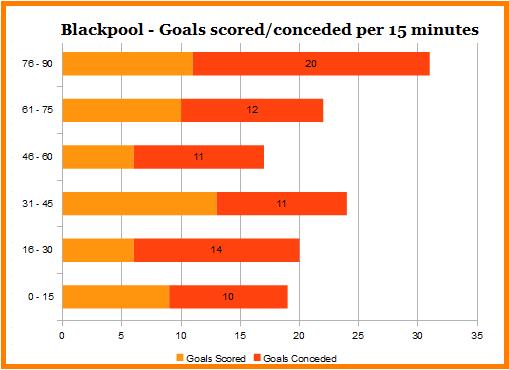


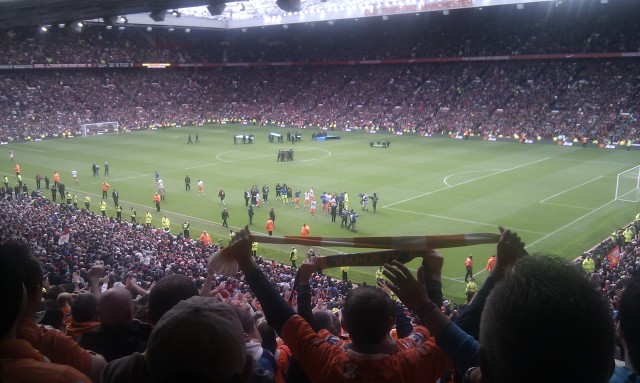



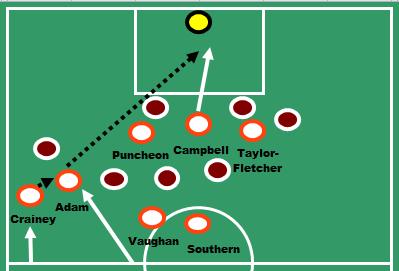





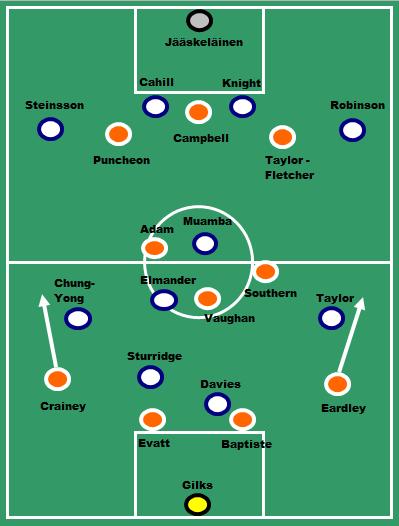


 Blackpool News 24/7
Blackpool News 24/7